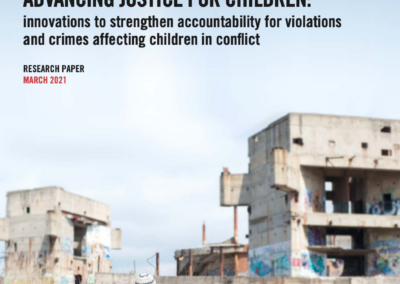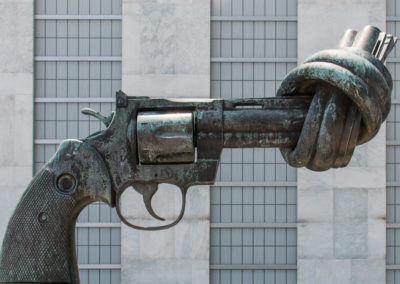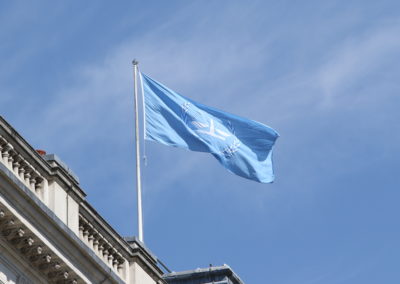Our Programme on International Peace and Security (IPS), in partnership with Save the Children, completed a research project concerned with Overcoming Barriers to Accountability for Crimes Affecting Children in Armed Conflict. The project was led by IPS Executive Director Federica D’Alessandra, alongside IPS Visiting Fellow of Practice Sareta Ashraph.
This research project sought to identify and overcome barriers to investigation, documentation and indictment of conflict-related crimes against/affecting children in conflict, including crimes which target civilian infrastructures/civilian populations but which have a particularly lethal and adverse impact on children, provide insight into the importance of an age-disaggregated and gender-sensitive approaches to investigations, recognising that ‘children’ are not a monolith, and provide recommendations on policy and behavioural change covering both investigative/documentary bodies, as well as prosecutorial units.
Save the Childrenapproached IPS as part of their work for the centenary year in 2019, which saw a prioritisation of policy, advocacy and programming efforts to protect children in conflict. Researchers at IPS were asked to develop new insight against one of three pillars of work identified by Save the Children as part of this work: holding perpetrators of grave violations against children to account (the other two pillars being: upholding standards and norms in conflict, and taking practical action to protect children and enable their recovery).
PROJECT REPORT
Advancing Justice for Children: Innovations to Strengthen Accountability for Violations and Crimes Affecting Children in Conflict, the project’s final report, identifies barriers which prevent perpetrators being held to account and outlines meaningful and practical strategies and solutions to overcome or mitigate those barriers.
The study takes lessons from different areas of law and draws on dozens of world-leading experts to set out how – and why – states, the UN system, civil society and NGOs and justice systems must respond. Among its recommendations, the report suggests ringfenced funding to include child-specific expertise within investigations; the development of a ‘roster’ of experts; that states require justice mechanisms prioritise children; and, that better pathways to support witnesses and children, including with their mental health and psychosocial wellbeing, are in place.
PROJECT TIMELINE




